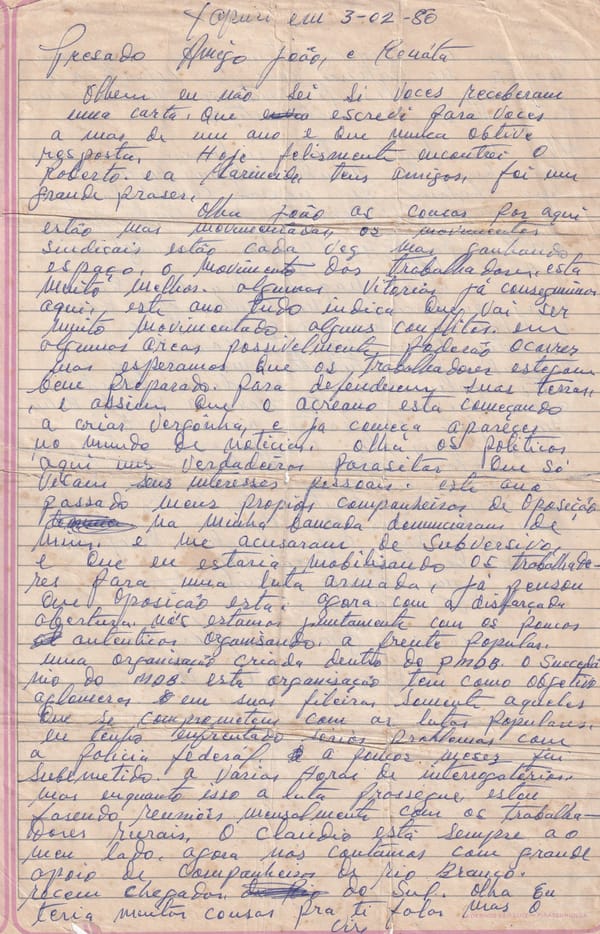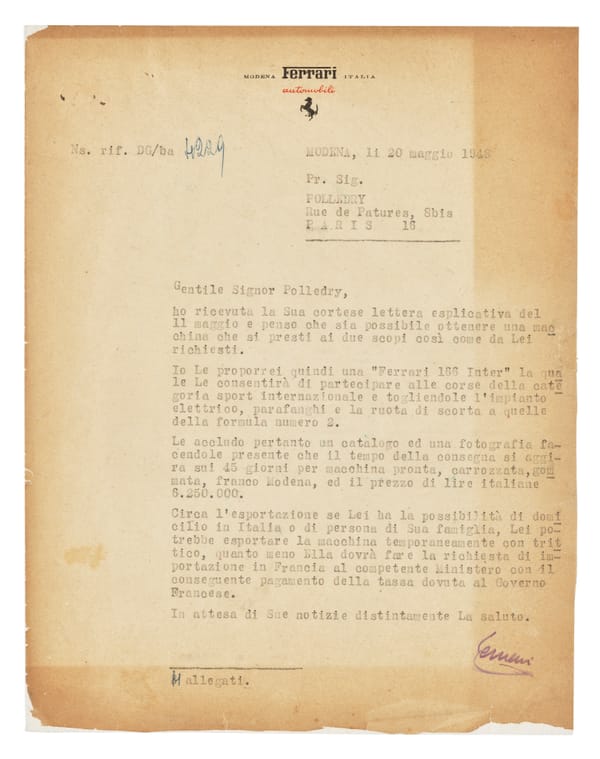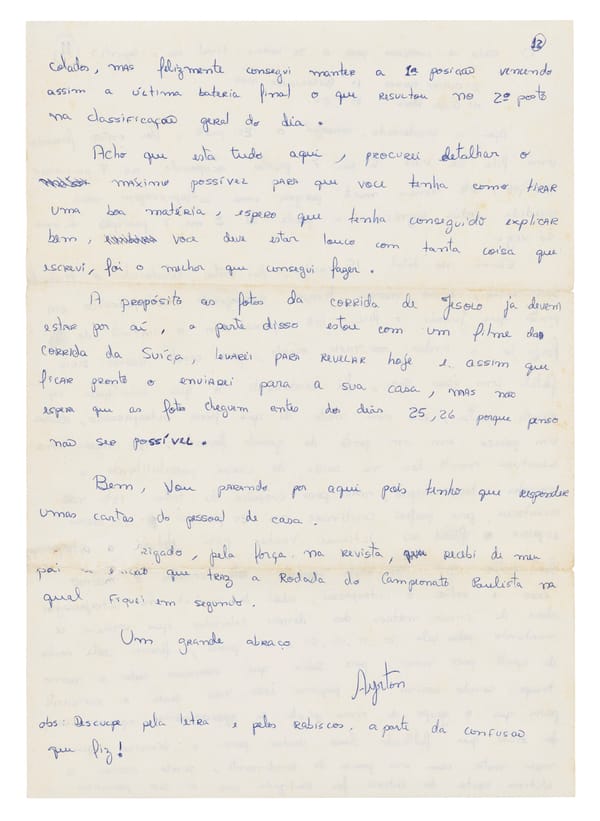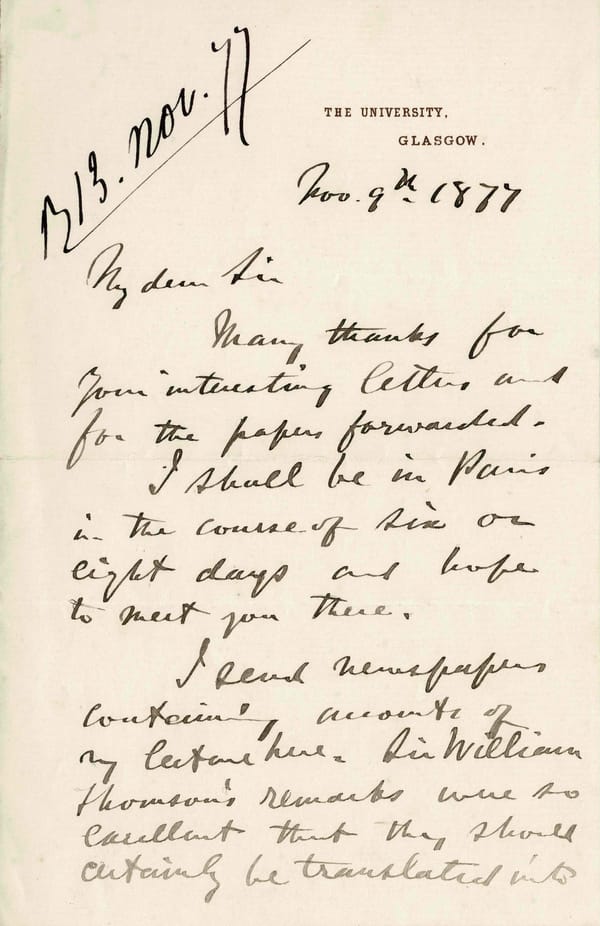When Arthur Rimbaud abandoned poetry to pursue profit
In the searing heat of Aden, far from his tumultuous youth left behind, poet Arthur Rimbaud writes home. No verses, only the raw voice of exile, fatalism, and fading hope. A rare glimpse into the final years of a literary legend who chose silence over fame.
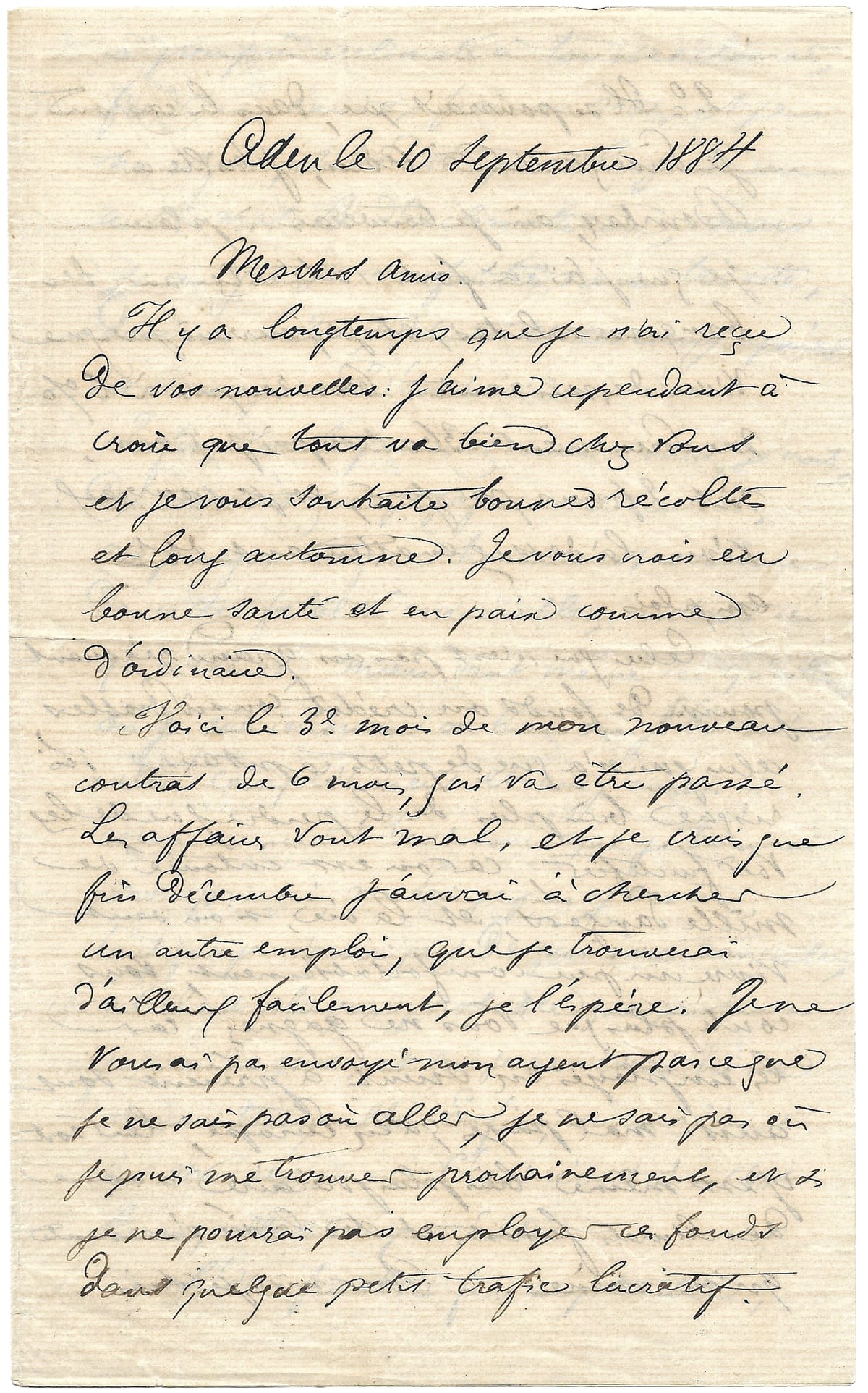
And since every man is a slave to this miserable fatality
These striking words, scribbled by a weary hand at the end of a letter dated September 10, 1884, do not come from a disillusioned philosopher or an obscure adventurer, but from one of France’s most elusive poets: Arthur Rimbaud. The very same Rimbaud who, as a teenager, had revolutionized modern poetry with A Season in Hell and The Drunken Boat, before abandoning literature entirely at the age of twenty to vanish into global wanderings.
We find him here in Aden, on the scorching coast of Yemen, where the former prodigy turned trader writes to his family, sharing the fatigue of exile, oppressive heat, and financial uncertainty. In this autograph letter, Rimbaud describes his reality without embellishment or lyricism: the commercial collapse of the Bardey firm, his plan to invest 6,000 rupees in Bombay, the absurdity of life in the East. He writes:
I feel I am growing very old very quickly, in these idiotic jobs and among these savages or imbeciles.
This rare document offers more than just insight into Rimbaud’s material life; it reveals a mind still in motion, brutally lucid. Far from the romantic image of the “accursed poet,” we meet a man who, despite failure and obscurity, still writes, observes, judges, and struggles. And perhaps what moves us most is that this letter allows us to hear, one last time, the voice of a thirty-year-old already resigned to life’s tragic fate:
Finally, as Muslims say: It is written! That's life, it isn’t fun.
This letter is presented to us by Laurent Auxietre, who runs Le Manuscrit Français from Versailles, France, a gallery specializing in the purchase, sale, and appraisal of rare autograph letters and manuscripts, primarily from major French figures in the arts, literature, history, and science. Each piece is selected with great care for its historical significance and rarity. Laurent is known for writing extremely detailed descriptions of each document and for his passion for studying their history and exchanging insights with other enthusiasts. Today, Le Manuscrit Français stands as one of the leading names in the world of autographs.

